
© Turtle Key Arts. (Click image for larger version)
Amici Dance Theatre Company
35 Amici Drive
London, Lyric Hammersmith
10 September 2015
Feature: All about Amici and its director Wolfgang Stange
www.amicidance.org
www.lyric.co.uk
Amici’s production celebrating its 35th anniversary is its first for five years, during which time the company for able-bodied and disabled performers had somewhat slipped from public awareness. The Lyric Hammersmith, Amici’s home theatre, was closed for ages for renovation; classes and workshops run by its founder, Wolfgang Stange, had to continue elsewhere.
To raise money for the new production, Amici resorted to an on-line appeal by the cast, SOS, Save Our Show. Donations came in, and the SOS banner was applied to the fictional tenement block at the heart of the show – 35 Amici Drive in an imaginary Hammersmith estate. The story is that the building is about to be demolished by developers to make way for luxury flats and a shopping mall, an all-too-familiar ‘regeneration’ of a long-established community. The residents have organised a protest – but will officialdom pay the slightest attention?
The set-up provides pretexts for dancing as the beleaguered residents make their case. Amici Dance Theatre Company stopped describing itself as an integrated company 30 years ago, confident that its performances needed no qualification. Though some of its members cannot or do not speak, they can all express themselves through movement to music. Stange believes that there should be no barriers, physical or mental, to performance. Even the most withdrawn can connect with each other and the audience – in wordless dance.
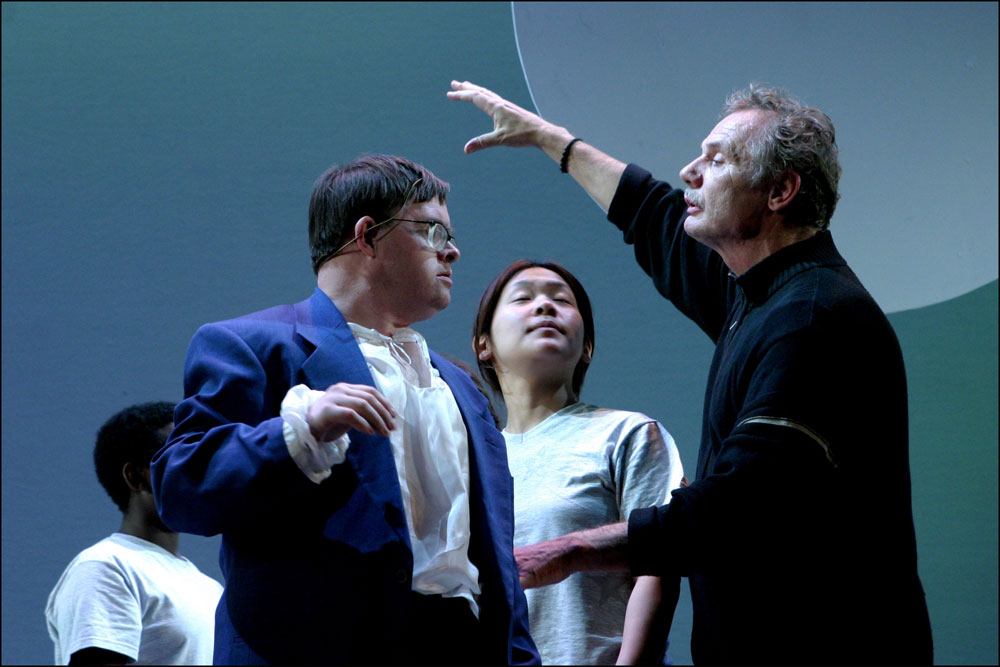
© Sheila Burnett. (Click image for larger version)
The characters involved in the protest against demolition are introduced to a recording of Ravel’s Bolero, accumulating in numbers as the music swells. They have found refuge in this building, accepted for who they are, whatever their circumstances: single mother with stroppy child, cross-dresser, abused woman, political exile, wheelchair user, autistic or Down’s syndrome person. Their spokesman is Gurpreet Dosanjh, head of the Resident’s Association, assisted by the mysterious Mr Loki (Francis Makekodunmi), a mischievous master of ceremonies in a snappy white suit and hat.
It turns out that their local pub is also an arts centre – a rationale for choreographed performances. The most skilful is a series of encounters for Suzie Birchwood, as an abused woman in a wheelchair, with a violent husband (Jan Patzke) and her protector (Olivia Quayle). The last two are acrobats, a circus-skills duo known professionally as Joli Vyann. In their interactions with Birchwood, a former dancer, her fragility is contrasted with their vigour as they remove her from the security of her wheelchair.
Cruder and ruder is a revue number for a transvestite, Ebony Rose Dark (Mikel Smithen) and a backing group of four sisters. When he is set upon by violent security guards, everyone comes to his aid in a furious ensemble dance with sticks. There is a tender duet for Chihiro Masuda and Delson Weekes, and an elegiac one for Dosanjh and Rosie Leak, as an artist who paints his portrait. Poignant poems reveal the dilemma of a loving parent (Liz Greeley) with a disabled son (Aimé Bosc Nikolov): she smothers him with over-mothering, dreading that she will die before him. The honesty of their performance together is overwhelming.
The residents’ encounters with the councillors and developers are savagely satirical. Abigail Palmer as the local MP, Mrs Hatcher, is very funny as she fails to remember Dosanjh’s name and then parrots clichés about the benefits of regeneration for the community. The mayor (Nicholas Perez-Serial) is impassive, the councillors complacent. Eastlawn Inc, the greedy developers, are such baddies that their CEO (David Grindley), is eventually banished below the stage in his wheelchair like a pantomime villain.
The rowdy battle scenes with staves are accompanied by vehement drumming by Nao Masuda, perched on scaffolding above the action, and her fellow musician, cellist Jenny Adejayan. Stange (as choreographer) and the production’s director, Michael Vale, use music cleverly, live and recorded, to drive and describe the many scenes as the story develops. It’s less coherent than earlier Amici productions on a single theme, and timings are awkward with so many people, over 40, on stage together. As ever, there is no sentimentality, no disguising of physical or mental impairment, no feel-good assurance of a happy ending. The residents of 35 Amici Drive have manned the barricades but sirens and flashing blue lights indicate that riot police are on the way. Development, it seems, is irresistible.

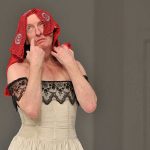


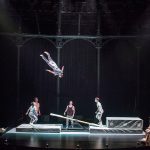

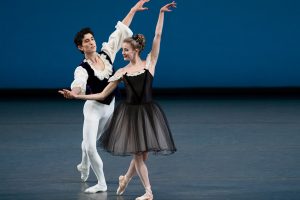
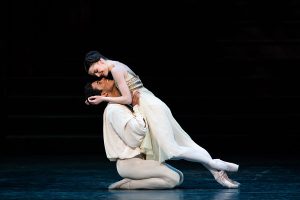
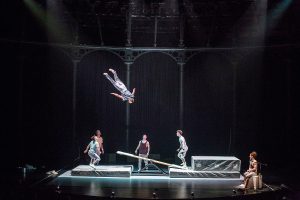
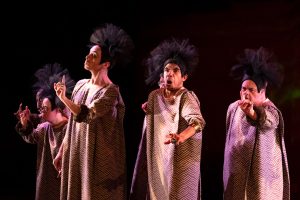
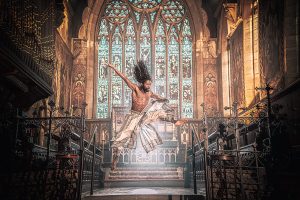


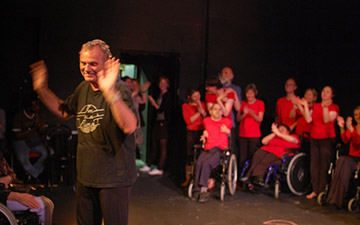

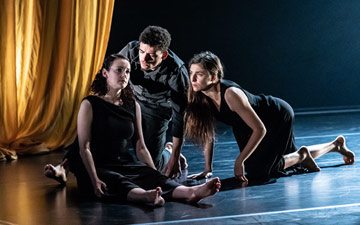

You must be logged in to post a comment.